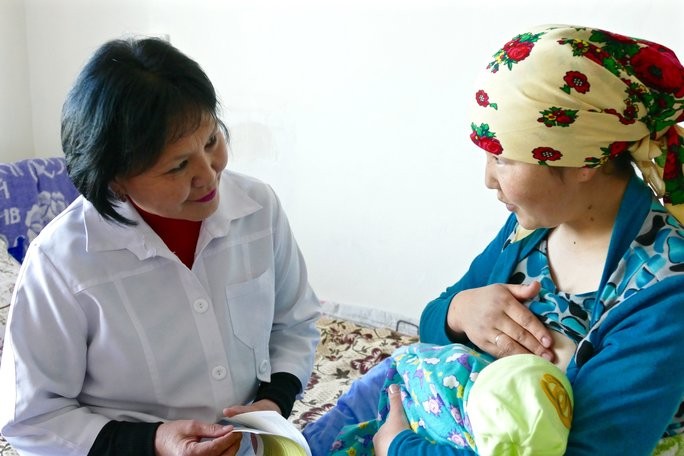BISHKEK (TCA) — The U.S. Agency for International Development (USAID) presented the achievements from the most recent evaluation surveys of its nutrition project in Kyrgyzstan, the Strengthening Partnerships, Results, and Innovations in Nutrition Globally (SPRING). The Ministry of Health, the Ministry of Agriculture, development partners, international organizations, practitioners, academia, and other stakeholders attended the roundtable last week, the US Embassy in Bishkek reported.
The surveys revealed positive changes across many nutritional indicators since the start of the SPRING project in 2014. Exclusive breastfeeding practices increased from 29 percent to 63 percent in implementation areas. Dietary diversity and consumption of green leafy vegetables and fruits also increased significantly. Another encouraging result is the decrease in consumption of unhealthy food among children under one year of age.
Nora Madrigal, USAID/Kyrgyz Republic Health and Education Office Director, highlighted the importance of nutrition as a key driver of economic growth and human development and noted that “the first 1,000-day period of a child’s life – counted from the start of a woman’s pregnancy until a child’s second birthday – is the critical window of opportunity to take action and prevent irreversible damage caused by poor nutrition.”
USAID SPRING project trains healthcare providers, improves delivery of nutrition services through the healthcare system, links agriculture and nutrition, and educates communities to promote optimal breastfeeding, better nutrition, hand-washing, and safe food preservation and storage. Since 2014, SPRING has trained over 6,000 healthcare workers, mobilized over 2,600 volunteers, and helped 17 healthcare facilities to obtain Baby-Friendly Hospital Initiative certification.
A four-year project, USAID SPRING works in close partnership with the Government of the Kyrgyz Republic and in numerous communities to improve maternal and child nutrition, prevent stunting, and reduce anemia among women and children in Kyrgyzstan.









